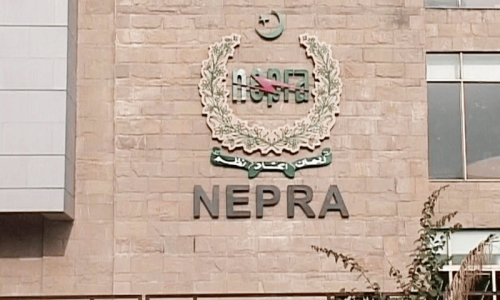The Chairman of the Council of Islamic Ideology (CII), Allama Dr Raghib Naeemi, said that the “positive use” of virtual private networks (VPNs) in the country was very rare as they were largely used to access “immoral content” anonymously, and urged users to register their VPNs to ensure traceability and promote responsible use.
VPNs are widely used around the world to access content that may be inaccessible or blocked for internet users in their home country. In the case of Pakistanis, they are used to access X, among other restricted websites.
In a proclamation on Friday, the CII — which advises parliament on aligning legislation with Islamic teachings — said using VPNs to access “immoral or illegal content” was against Sharia.
CII Chairman Allama Dr Raghib Naeemi said Islamic laws allow the government to prevent actions that lead to the “spread of evil”, adding that any platform used for posting content that is controversial, blasphemous, or against national integrity “should be stopped immediately”.
While speaking on DawnNews TV programme ‘Doosra Rukh with Nadir Guramani’ yesterday, the CII chairman said that VPNs were being used to make it difficult to trace users allegedly accessing “immoral content”, such as blasphemous content or pornography.
“VPNs allow users to access immoral content online,” he said. “The majority of VPN activity is unregistered and it makes users untraceable.”
Asked about the impact of banning VPNs on businesses and other sites, Dr Naeemi maintained that registered VPNs will still be available for use.
“Registering VPNs will ensure that activity can be traced,” he added. “The use of VPNs for positive purposes is very rare. They are more or less used to access the immoral content I mentioned. The whole point of using them is anonymity.”
When asked if people can access immoral content through registered VPNs, the CII chairman reiterated that they will not be able to gain access. “We will monitor how many people have registered VPNs and how many use them for positive purposes.”
“The Council held a consultative meeting in 2023, our then-chairman Dr Qibla Ayaz brought these concerns forward and we passed them on to the PTA,” Dr Naeemi added. “We recommended that they shut down VPNs that enable access to immoral content.
“A worshipper brought up the issue during Friday prayers,” he added. “We elaborated on the question and the council chose to issue the press release.”
The Interior Ministry on Friday asked the Pakistan Telecommunication Authority (PTA) to block “illegal VPNs” across Pakistan, citing their use by terrorists to “facilitate violent activities” and to “access pornographic and blasphemous content”.
In a letter to PTA on Friday, seen by Dawn.com, the interior ministry said that “VPNs are increasingly being exploited by the terrorists to facilitate violent activities and financial transactions in Pakistan.
“Of late, an alarming fact has been identified, wherein VPNs are used by terrorists to obscure and conceal their communications,” the letter said. “VPNs are also being used [to] discreetly access pornographic and blasphemous contents.”
“It is, therefore, requested to block illegal VPNs across Pakistan so that legitimate/registered VPN users are not affected.”
Additionally, registration of VPNs with PTA may be made till November 30, the letter stated.












































